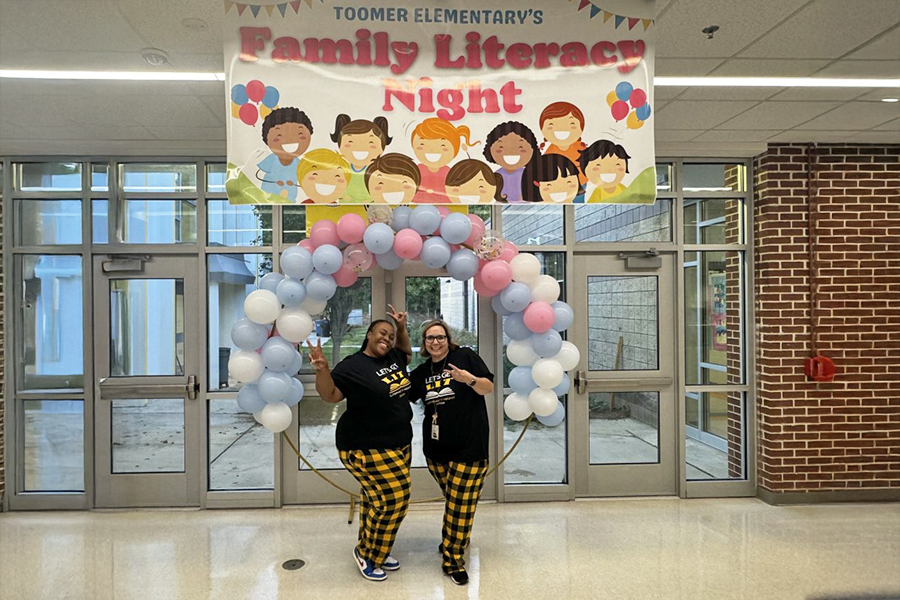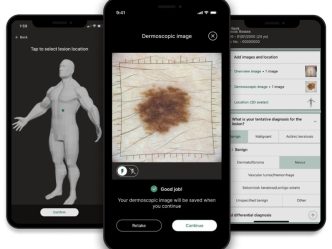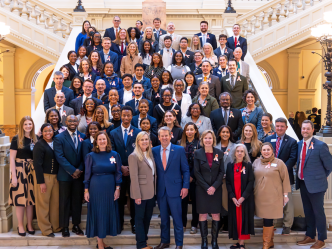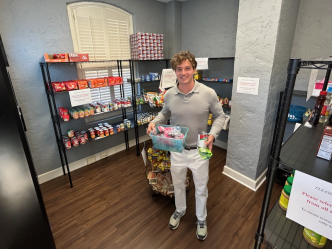What starts in Augusta University’s virtual classrooms doesn’t stay there. In the fully online Critical Cultural Studies in Education course taught by Nate Koerber, PhD, students aren’t just submitting assignments, they’re launching real-world change.
The course, attended by practicing educators, including principals, instructional coaches and district administrators, is intentionally designed to spark reflection and connection. Students participate in virtual discussion nights scheduled based on their availability and complete application-based assignments rooted in their educational settings.
Augusta University alumna Emily Max, who earned her EdS in educational leadership at the end of the summer semester in 2024, turned the course’s final project, the Critical Education Implementation Idea, into a full-scale community event.
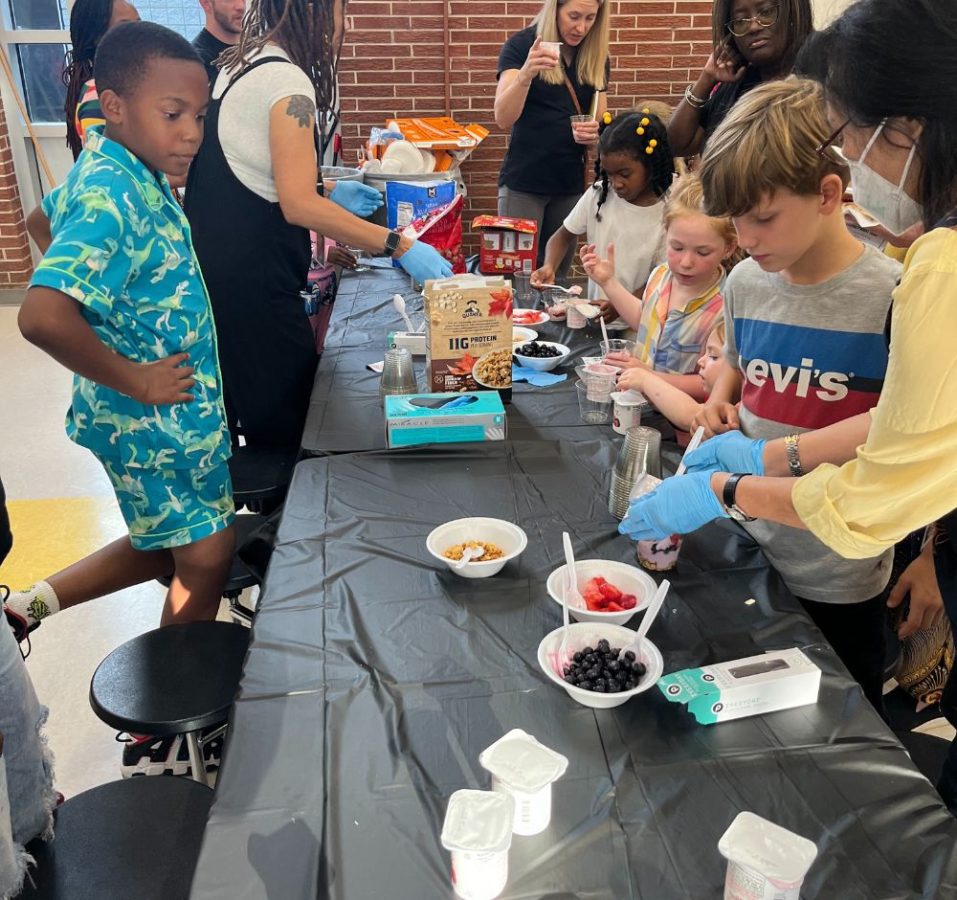
Currently, Max is an instructional literacy coach at Toomer Elementary School in Atlanta, where she hosted a literacy night, inviting local leaders, including the Civil Bikes tour group, which leads historical bike tours in Atlanta, and bilingual author Nury Castillo Crawford.
Max’s event blended creativity and cultural responsiveness, from a recipe-based literacy activity, “If you can read, you can cook,” to a virtual reality storytelling experience. The community showed up and kept showing up.
“It’s a big group effort, and the more people that get involved every year, the better things become,” said Max. “Now it’s kind of an annual event.”

Koerber was impressed by how seriously Max and others approached their assignments.
“They could just do it to get a grade, but she had developed it so thoroughly that she wanted to actually run the critical literacy night,” Koerber said.
Max appreciated the course’s flexibility and real-world focus.
“It was one of the few courses that made you feel like you weren’t just going through the motions,” she said. “There was a lot of freedom, but also a lot of encouragement to bring your own experience to the table.”
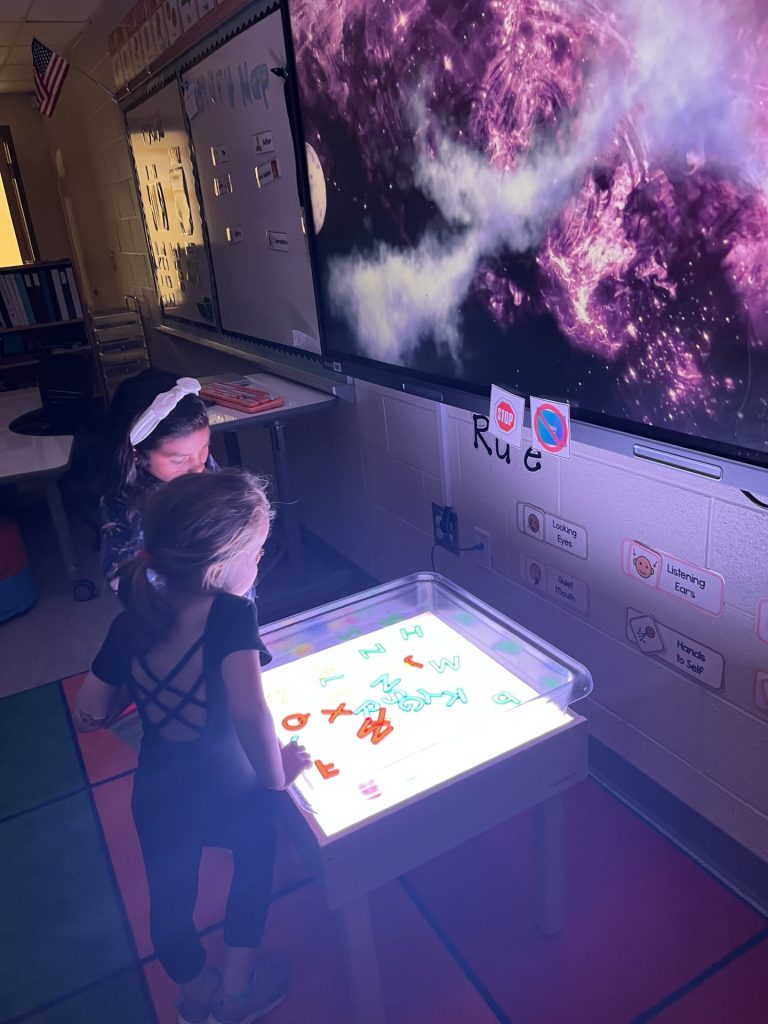
Support from within the university has been key to innovation in online instruction. Koerber credits the Department of Research, Counseling, and Curriculum for providing the autonomy to develop course content that is both rigorous and practical.
“To see what Emily accomplished is a direct reflection of Dr. Koerber’s gifts as an instructor,” said Alicia Becton, PhD, chair of the Department of Research, Counseling, and Curriculum. “Dr. Koerber brings a rare blend of insight and creativity that resonates across students, faculty, staff and administrators alike. His energy is contagious, his collegiality unmatched and his contributions invaluable. It is an absolute joy to work alongside him.”
“Dr. Becton really trusted me to build the course as I needed, and colleagues like Dr. Kelly Allen and Dr. Darla Linville shared ideas that helped shape the class,” he said.

As Augusta University expands its online offerings, it’s making space for innovation, not just for students but for faculty, as well. Koerber is currently developing a foundational course for AU’s upcoming leadership concentration within the Doctor of Education program. With a research background that has taken him to New Zealand, the United Kingdom and Chile, he is eager to bring global insights into the digital classroom.
But beyond the global reach and institutional support, Koerber believes what truly defines success in Augusta University’s online courses is student ownership.
“What you put into the course is what you can get out of it,” he said. “If students really want to engage with these courses, they will come back with things that are going to make their spaces better.”
 Augusta University
Augusta University
